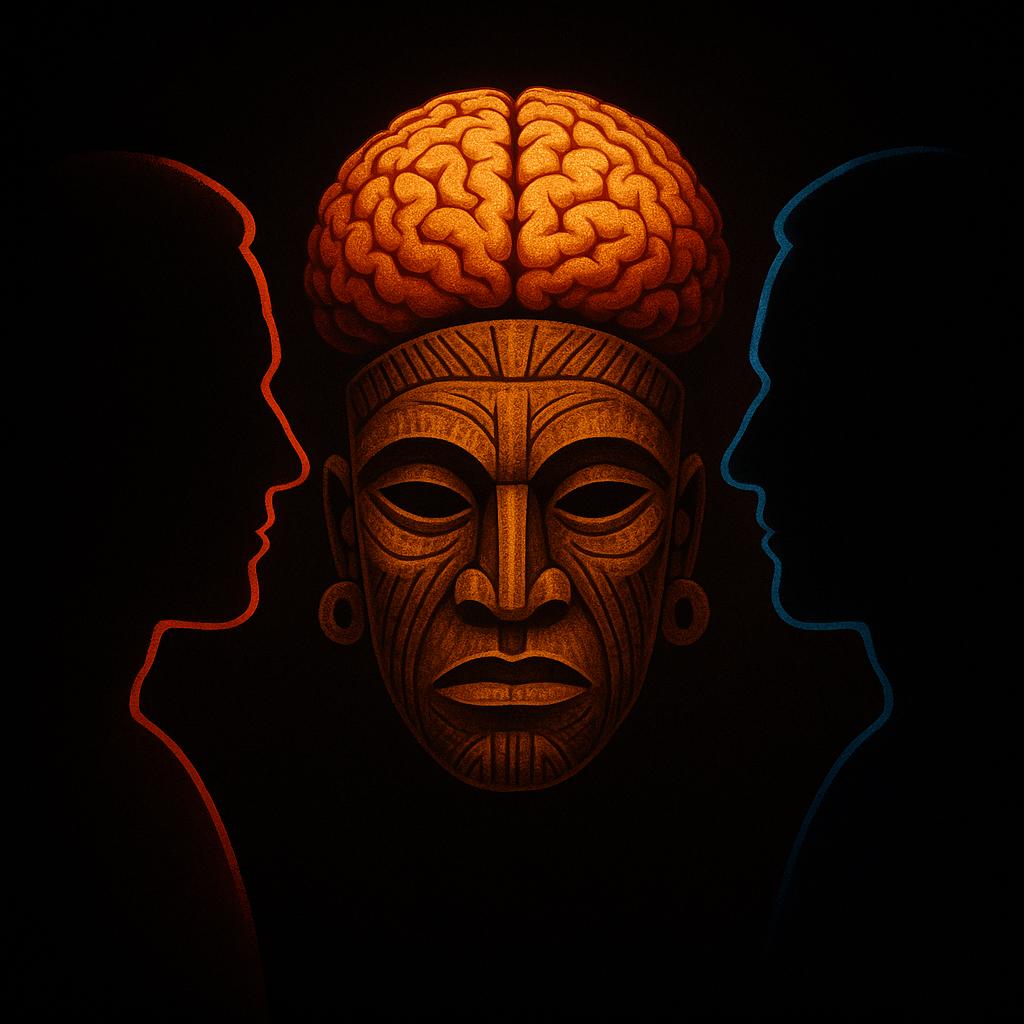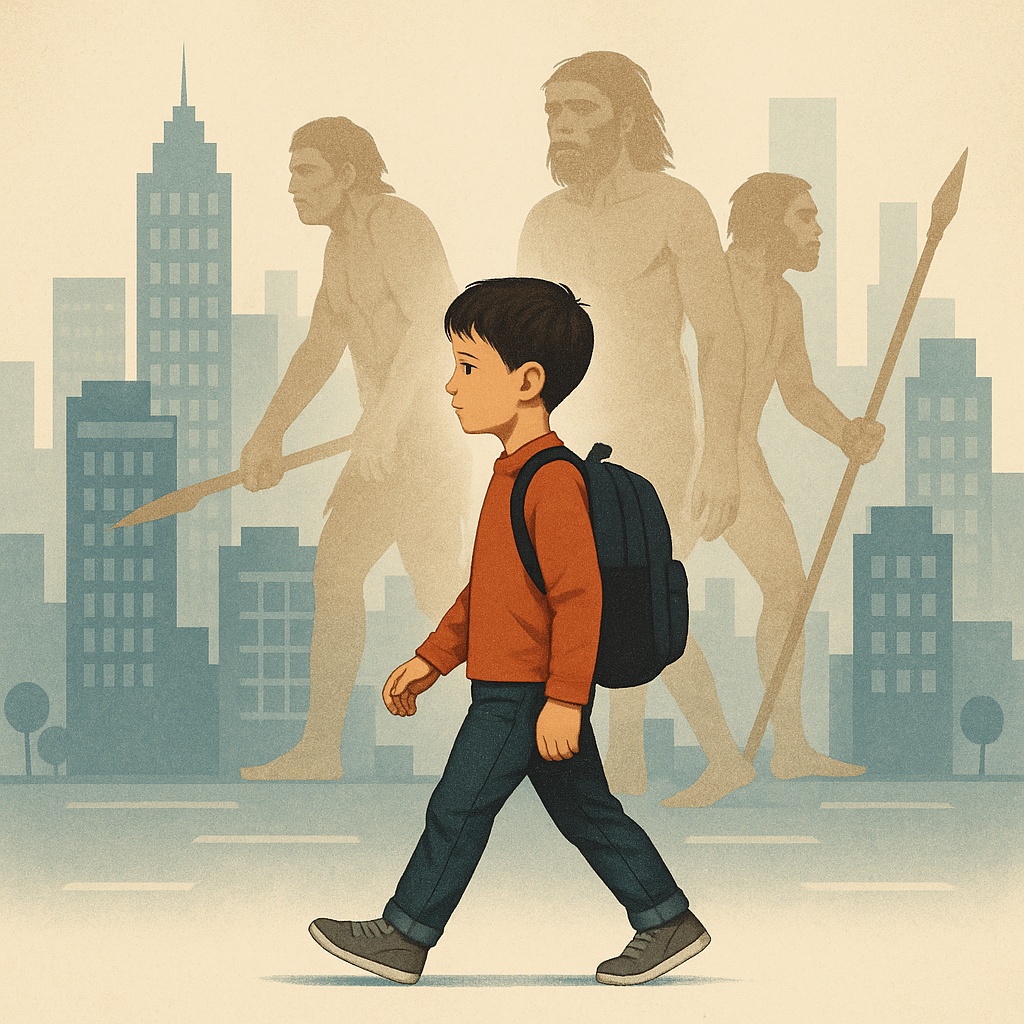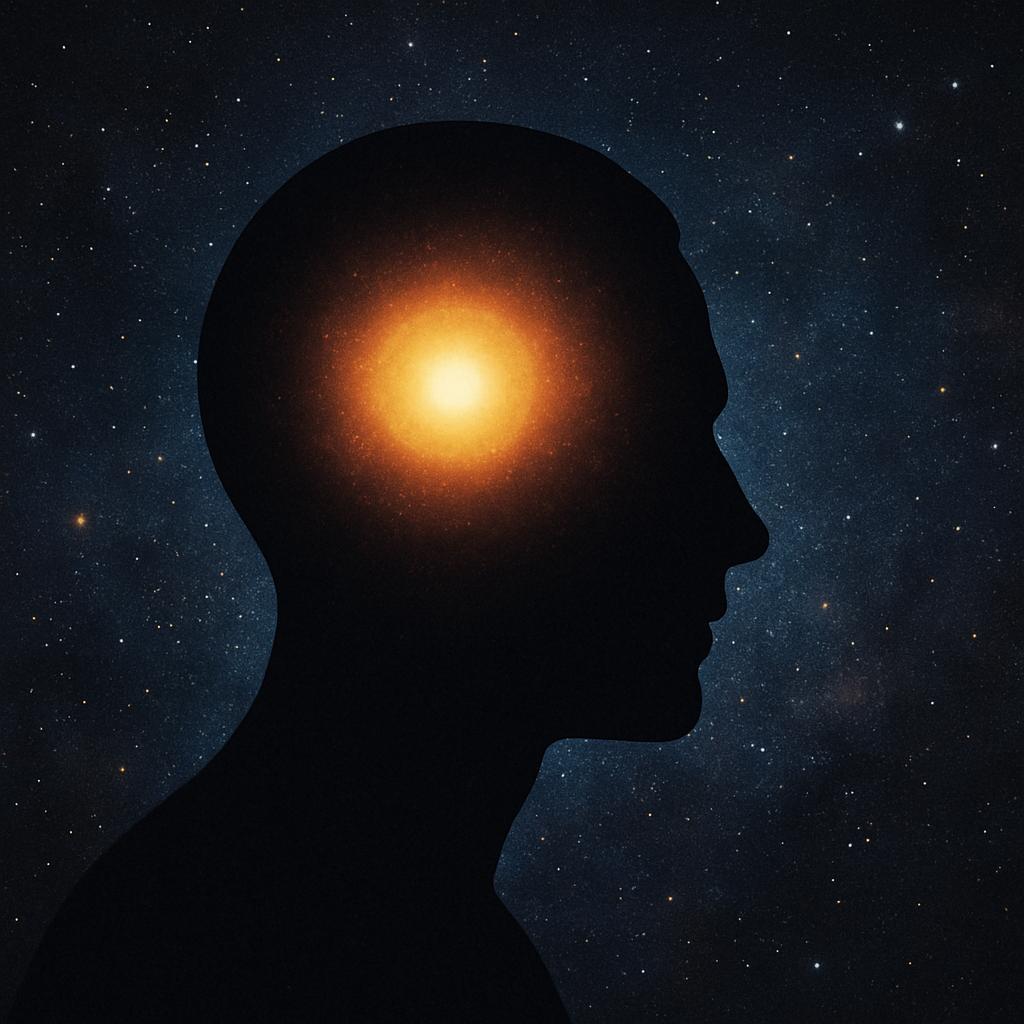Tag: evolution
-

The feeling of being stupid and knowing better
When I walk through my hometown of Jičín and pass its churches, I do not feel reverence; instead, I observe evidence. I move between the medieval church from the 13th or 14th century and the newer church from the 1600s; together, they form a continuous record of how humans once explained reality. These buildings do…
-

Why humans invent eternity: Different afterlives, one psychology
Human beings fear death more than anything else. The body rejects it. The mind rejects it even more. Every civilization tried to answer this fear with stories of eternity. Some promised paradise. Others threatened torment. Some imagined endless cycles of rebirth. A few rejected immortality entirely. All attempted to give shape to the unknown. Yet…
-

Cognitive-behavioral manual for leaving religion
Leaving religion feels like dismantling a world inside your skull. You tear out a belief system that shaped your fears, your morals, your identity, your family bonds, your daily routines, and your sense of cosmic safety. And you do not simply reject a doctrine. You uproot an entire psychological ecosystem. This manual explains every hidden…
-

Facing Jesus’ non-existence: Two approaches
Every honest inquiry begins with discomfort. And nothing creates more discomfort than asking whether Jesus ever existed at all. Once you look at the historical evidence, the silence becomes deafening. The era overflowed with chroniclers who described everything: uprisings, quacks, prophets, magicians, riots, executions, natural phenomena, and obscure cults. Yet they never described Jesus. This…
-

Death penalty has no place: Freethinkers destroyed it
Freethinkers always challenge inherited dogma. They question every ritual, every ancient punishment, and every sacred justification for violence, they look at the death penalty and see a leftover from tribal thinking. They see fear, anger, and superstition shaping a policy that kills people. Freethinkers reject execution because they value reason, evidence, dignity, and moral responsibility…
-

The ancient tribal instincts behind political polarization
Political polarization did not begin with modern politics. It began in the deep past. Humans evolved inside small tribes where loyalty meant survival and disloyalty meant danger. Because of that, our brains still react to politics as if we lived in hostile plains filled with rival clans. Therefore modern polarization is not rational disagreement. It…
-

What children instinctively know: Pure evolutionary psychology
Children reveal the deepest layers of human nature. They act before culture reshapes them. They respond to the world with instincts older than civilization. Their reactions expose the evolutionary psychology we still carry inside our minds. Children read hierarchy, alliances, resources, threats, and reputation with astonishing accuracy. They know who matters inside a group, they…
-

Freethought and the neuroscience of belief
Freethought begins in the brain. It does not start with atheism, philosophy, or rebellion. It starts with understanding how neural circuits create conviction. The brain evolved for quick decisions, not for truth. It rewards certainty and punishes doubt. It embraces tribal loyalty and rejects unfamiliar facts. Therefore freethinking does not fight religion alone. It fights…
-

You are the exceptional thing in the universe
You are not eternal. You are not a recycled soul wandering through endless lifetimes. And you are a one-time event — a conscious robot built by evolution, running on fragile flesh and electric neurons. In this infinite and indifferent universe, you are the only version of yourself that will ever exist. Your consciousness, this flicker…
